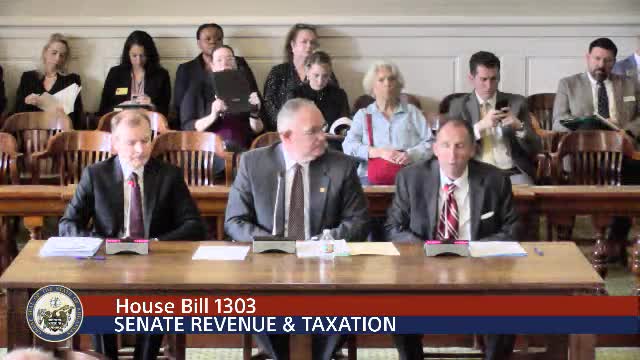Committee adopts amendment removing state buyback from tax-credit package for renewable fuel project; bill then passed as amended
Get AI-powered insights, summaries, and transcripts
Subscribe
Summary
House Bill 1303 — a tax-incentive package tied to Natural State Renewables' planned sustainable aviation fuel plant — was amended in committee to remove a state buyback of credits and to prohibit sale of those credits; DFA said the amended proposal remains revenue neutral under its scoring and the committee passed the amended bill.
The Revenue & Tax Committee considered House Bill 1303, a tax-credit package tied to a proposed renewable-fuel plant by Natural State Renewables, and approved a substantive amendment that removed a state buyback option for certified tax credits and limited transferability.
Senator Matt Stone introduced the amendment and described its effect: "what this amendment is gonna do, it's gonna relieve the state of this obligation to buy back tax credits, and it also has it removes it to where the tax credits cannot be sold," Stone said. Paul Gehring of the Department of Finance and Administration (DFA) provided a technical summary that tracked the changes in certification, monetization and the credit lifecycle.
Under the bill as discussed in committee, the original measure would have certified a 30% tax credit on qualified project expenditures for the plant; certified credits could be monetized and, in the prior draft, the state could buy back up to $10 million of credits per year for an 80% payout. After the committee amendment, the buyback provision was removed and credits held by the taxpayer would be claimed against tax liability as allowed under the amended language.
Michael Newton, chief executive of Natural State Renewables, described the project model and economic expectations to the committee, saying, "with our plant that we are building in South Arkansas ... we will be buying, 50 to a hundred million dollars a year of forest products," and that company projections showed the project generating taxable income. Senator Stone said the project would create approximately 200 permanent jobs with an average salary of $100,000 and generate about 1,500 construction jobs during build-out; those figures were offered by the sponsor and company representative as project estimates.
DFA told the committee it had issued a revenue impact statement for the most recent house amendment and that both the earlier and amended forms had revenue-neutral fiscal scoring when the department's cost-benefit and clawback requirements are met through an incentive agreement with the Department of Commerce. Committee members debated precedent and scoring methodology before adopting the amendment.
The committee adopted the amendment (motion by Senator Caldwell; second by Senator Crow) by voice vote, and then voted to pass the bill as amended. The chair announced the bill passed the committee.
